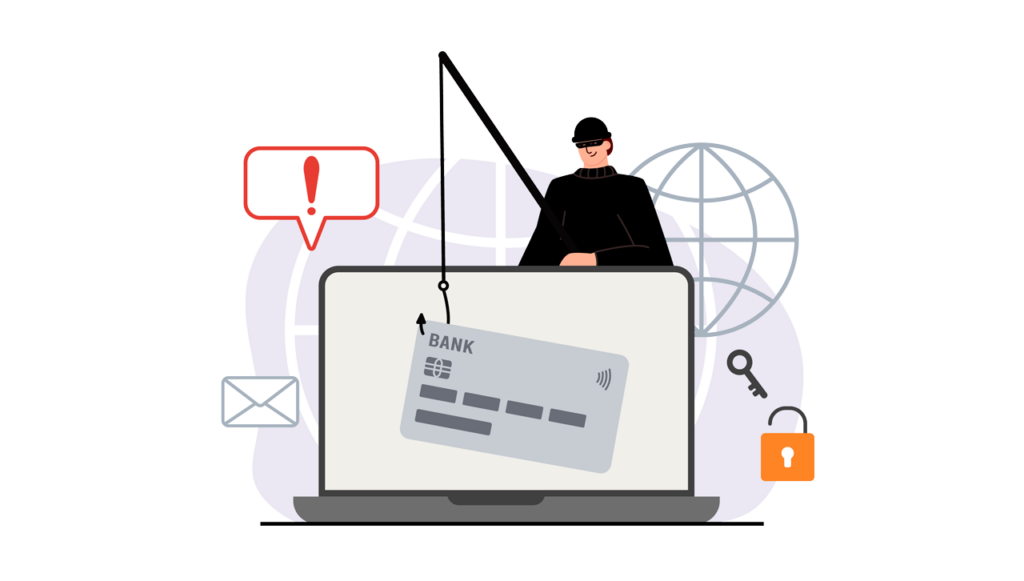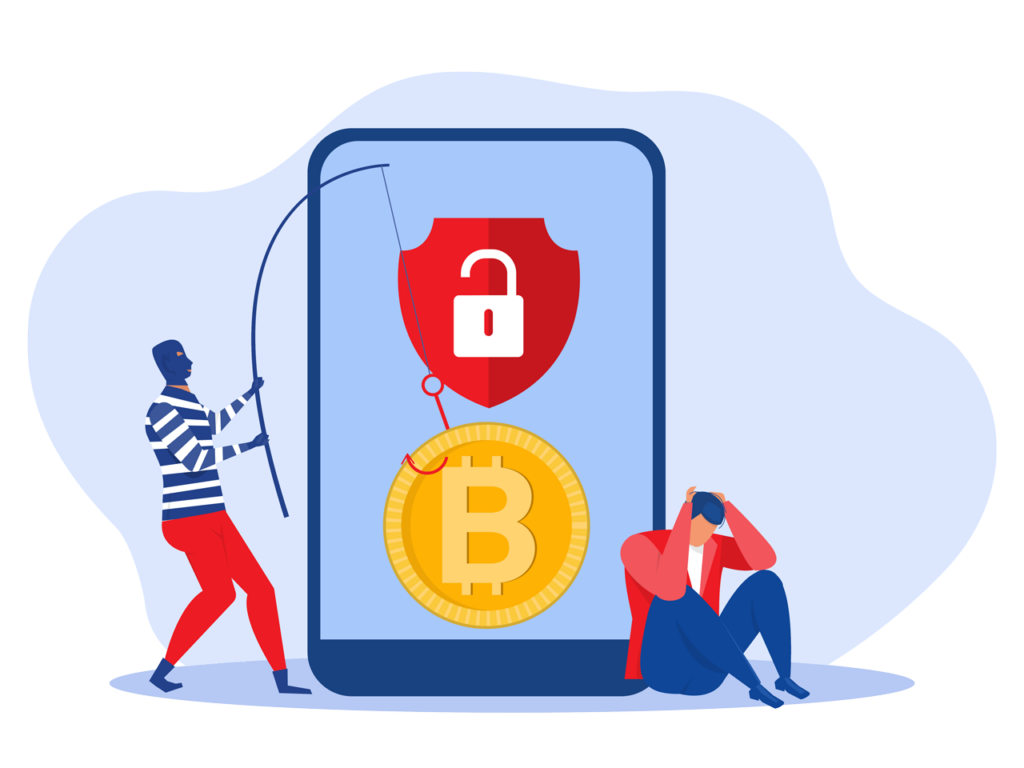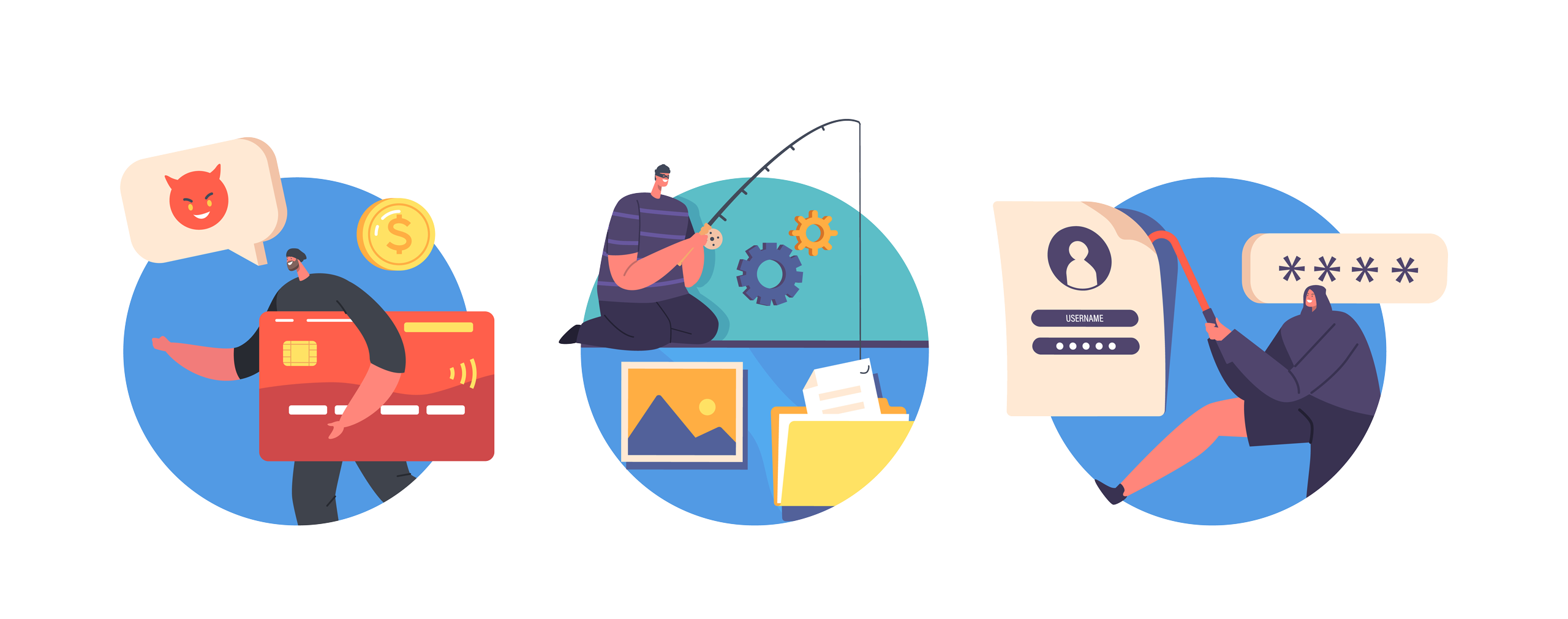In today’s digital age, buying and selling items online has become increasingly popular, thanks to platforms like Facebook Marketplace and Instagram Marketplace. While these platforms offer convenience and a wide range of options, they also come with their fair share of risks, including scams. In this blog series, we’ll explore various strategies to protect yourself from online scams, starting with the common techniques used by scammers on Facebook and Instagram Marketplace and how to avoid falling victim to them.
Common Scamming Techniques and How to Identify Them
PayID Scams and Fake Bank Verification:
Scammers often offer payment through PayID and then send a link to a fake bank login page under the guise of verifying the PayID payment. They might also mention a relative or friend picking up the item to seem more credible. Incoming PayID payments NEVER require additional verification like bank logins or pin codes. Never click a link sent to you under the guise of verifying a payment.
Also never send payment via PayID etc up front for deposits, payments to hold etc. 9/10 times you will lose your money and the seller will dissapear when they ask for this.
Phishing Scams:
Some listings may contain links to malicious websites designed to steal your data or ask for sensitive personal details like bank account or credit card information. Always check links and email addresses, these scams usually come from a domain that is not the official companies domain name and from non-official numbers and email addresses.

Immediate Offer and Address Request:
Scammers quickly agree to the asking price and ask for your address for pickup. They may proceed to the PayID scam or try to gather more personal information. If someone asks for an address for pickup, Give them a phone number and ask them to call or text you when they plan to come and collect the item for availability confirmation and address. This allows you to make sure they have a real functional local phone number which eliminates 75% of these scammers who are based overseas.
Overpayment Scams:
A buyer “accidentally” pays more than the asking price and then asks for a return of the overpayment. However, the original payment often gets declined as scammers use stolen credit cards or bank account details for these transactions. Never issue a refund on an overpayment until the original payment has been fully cleared. That may mean the buyer is out of pocket for a couple of extra days due to their own mistake if they are legit, but its better than you being out of pocket permanently if they are not (the latter is more likely).

Outside Payment Scams:
A seller might ask you to complete the transaction on a different website or through an outside payment method, like a wire transfer or PayPal, bypassing the safety of the original Marketplace. While some alternative methods are safer than others, there are a lot of scams involving alternative payment methods, so its best to be cautious. If you cant use an official payment, try to use cash in face to face meet ups.
Cryptocurrency or Non-Secure Payment Methods:
Be cautious if a seller asks for payment through cryptocurrencies, wire transfers, money orders, or pre-loaded gift cards. These payment methods generally have to way of recovering a payment if/when you get scammed, which is why scammers tend to choose them. If someone wants to receive a payment for a marketplace item via crypto, money order, wire or gift card they are almost certainly a scammer. If you do not know the person and even if you do, be very wary.
Inconsistent Pricing and Bait-and-Switch:
Be wary if a seller changes the item’s price after you show interest, or if they advertise a low price but then try to sell a different, more expensive item. This is a classic bait-and-switch tactic. In these cases its best to just move on and find a different item. These are classic cases where if everyone just ignored them once they try, they would just go away.
Fake Rental Scams:
Scammers post rental properties with attractive low prices and stunning photos. They often ask for an upfront payment to “reserve” the property and then vanish. Make sure you can inspect the property, check all the details out and try and find feedback on the property. If something seems too good to be true, it probably is.
Counterfeit Item Scams:
Scammers sell counterfeit items, especially designer products, passing them off as genuine. The buyer ends up receiving a fake item. This goes back to the ‘if it seems too good to be true, it probably isnt true’ rule. Use common sense here and check for signs or even ask for proof its real.
Insurance-Fee Scams:
In these scams, for items to be mailed, scammers request additional payment for shipping insurance, often providing fake invoices as proof. Once the payment is made, they disappear. Always check details on invoices and make sure that payments are only made via official websites. Scammers can easily set up a website using a domain that looks similar, but isnt the correct site and issue invoices/set up payment gateways that look almost correct.
Google Voice Scams:
Scammers posing as buyers or sellers may ask for your phone number, then use it to open a Google Voice account. They will ask for the verification code sent to your phone, which they can then use for fraudulent activities. NEVER provide text verification codes to anybody for anything!

General Security Tips for Buying and Selling on Online Marketplaces
Do Your Research:
Verify the authenticity of the seller or buyer. Check their profile for reviews and the history of their account.
Use Official Checkouts Where Possible:
Stick to official payment and shipping methods provided by the marketplace where possible. This ensures purchase protection. Always pay face to face on item collection when possible.
Meet in Person:
If possible, meet the seller in person in a public and well-lit area. Inspect the item before paying.
Don't Share Sensitive Information:
Avoid sharing your bank details, social security number, or other personal information.
Be Skeptical of Too-Good-to-Be-True Offers:
If an offer seems too good to be true, it probably is. Always be cautious.
Track and Record Transactions:
Keep a record of all communications and transactions. Request shipping tracking numbers for mailed items.
Report Suspicious Activities:
If you encounter any suspicious behavior, report it immediately.
Need Help?
Feel free to get in contact if you have any questions, or need assistance with anything website or IT related.


